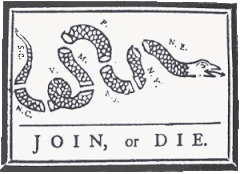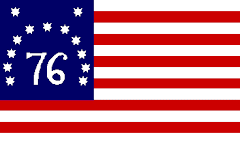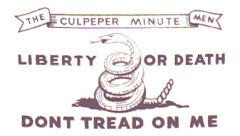My Dear Fellow Patriots;
The following essay was written by Shmuley Boteach for the Jerusalem Post, and it falls under the category of "I wish I had written that..."
He captures succinctly and completely the reasons why conservative values surpass progressive values not only in a practical sense, but in a moral sense, and he gives us a blueprint for building a stronger bond with minority and underprivileged communities. This is something I have targeted for quite some time, and I, for one, intend to use his insight in an attempt to increase awareness and support in those communities.
The link to the original column is here. Please read and enjoy, and I welcome your comments and suggestions at taxdayteapartysiny@gmail.com
Yours in Liberty,
Frank
Why the Tea Party Resonates With Human Dignity
The Tea Party movement is far from perfect, but it taps into a hidden human desire to live a life crowned with self-esteem.
One Friday night at my home, a dear friend who runs a large charitable foundation raised his glass to toast the demise of the Tea Party, which he branded a group of racists, xenophobes and bigots. Taken aback, I responded that to my knowledge the Tea Party is focused simply on more limited government and the reduction of government spending. I didn’t know racism was part of the platform, I said.
But he was adamant that the Tea Party’s small-government rhetoric was an attack on low-income minorities.
Lost in the debate about the morality of the Tea Party is any discussion about its underpinnings in human nature. The principle purpose of government is to provide the optimal conditions under which human beings can acquire their most important necessities, the highest of which is dignity.
Governments provide many essentials for their citizens, from law and order to social services, from good roads to education. If it’s a socialist government, it may even provide cradle-to-grave benefits, or if it’s a more Right-leaning government, it may emphasize robust national defense. But the one human essential that government cannot provide is human dignity.
Dignity is something acquired through personal effort. Dignity is the human aura that comes through self-reliance.
Its underlying premise is independence. A dependent life is a fundamentally undignified life. Self-respect is earned through the sweat of one’s brow. An heir to a great fortune may travel the high seas in a 100-foot yacht and soar through the air in a Gulfstream V. But he will remain without dignity so long as he is living on someone else’s dime.
Yes, people want to pay their bills. They want nice houses and material comforts. But more than anything else they seek an existence infused with a sense of relevance and purpose. We seek redemption, but wish for it to come through our own devices.
IN MANY cultures the loss of dignity, or face, becomes a reason to terminate life itself. The Talmud states that shaming someone in public is worse than murder, because the public humiliation makes them wish they were dead.
America’s rapid rise to global economic power was not an accident, but the direct result of a fierce individualism and rugged self-reliance on the part of its citizens.
Where European populations were content to live under anointed rulers, Americans threw off the yoke of a foreign sovereign and tamed a vast wilderness. For Americans, divine right translated as manifest destiny – the ability of an immigrant nation who arrived on these shores with nothing, to spread their accomplishments from sea to shining sea. In so doing, Americans claimed a level of independence and dignity that had few historical precedents.
The welfare state claims it is more moral than capitalism, which it sees as selfish and materialistic. There is some truth to this claim, especially when capitalism is allowed to run rampant, becoming soulless and deadening. But for all its flaws, capitalism fosters an independence that promotes dignity while socialism creates a reliance that subverts self-esteem. Yes, the government must provide a safety net for a rainy day, but only selfreliance creates a sunny life.
I recently heard a philanthropist tell of visiting a soup kitchen that had asked for his support. He was skeptical that the people eating there were actually in need; perhaps they simply came because the food was free. But the rabbi who ran the facility asked him: “Are you capable of asking someone for food?”
The philanthropist answered that he was not. “Well then,” the rabbi responded, “if someone is forced to ask me to eat, I have to believe he is truly hungry.”
The story illustrates both the necessity of providing essential social services for those in need, while always being mindful never to allow that need to become a permanent dependency. True, socialist governments provide without people having to ask. But the effect is the same – a corrosive dependence on the hand that feeds. The effort to recapture the dignity that springs from selfreliance is what the Tea Party should be all about.
Countries like Britain, Greece and Spain are undertaking drastic austerity measures to rescue themselves from economic collapse. In truth, however, their move away from reckless entitlements and wholesale capitulation to organized labor has less to do with their inability to afford vast social services than it has to do with reversing the corruption these services were fostering in their populace. My progressive friends speak to me about how a compassionate society takes care of its citizens. That is true. But it must also take care to ensure that it never robs its citizens of the nobility of spirit which is their birthright.
Does having your job preserved by a union when you consistently underperform induce pride? Can you feel good about yourself when you’re in a profession in which only collective pressure keeps you receiving a paycheck?
Maimonides famously lists levels of charity, with the provision of a vocation being the highest. The Tea Party is far from perfect, but in emphasizing self-reliance, it taps into a hidden human desire to live a life crowned with self-esteem.






